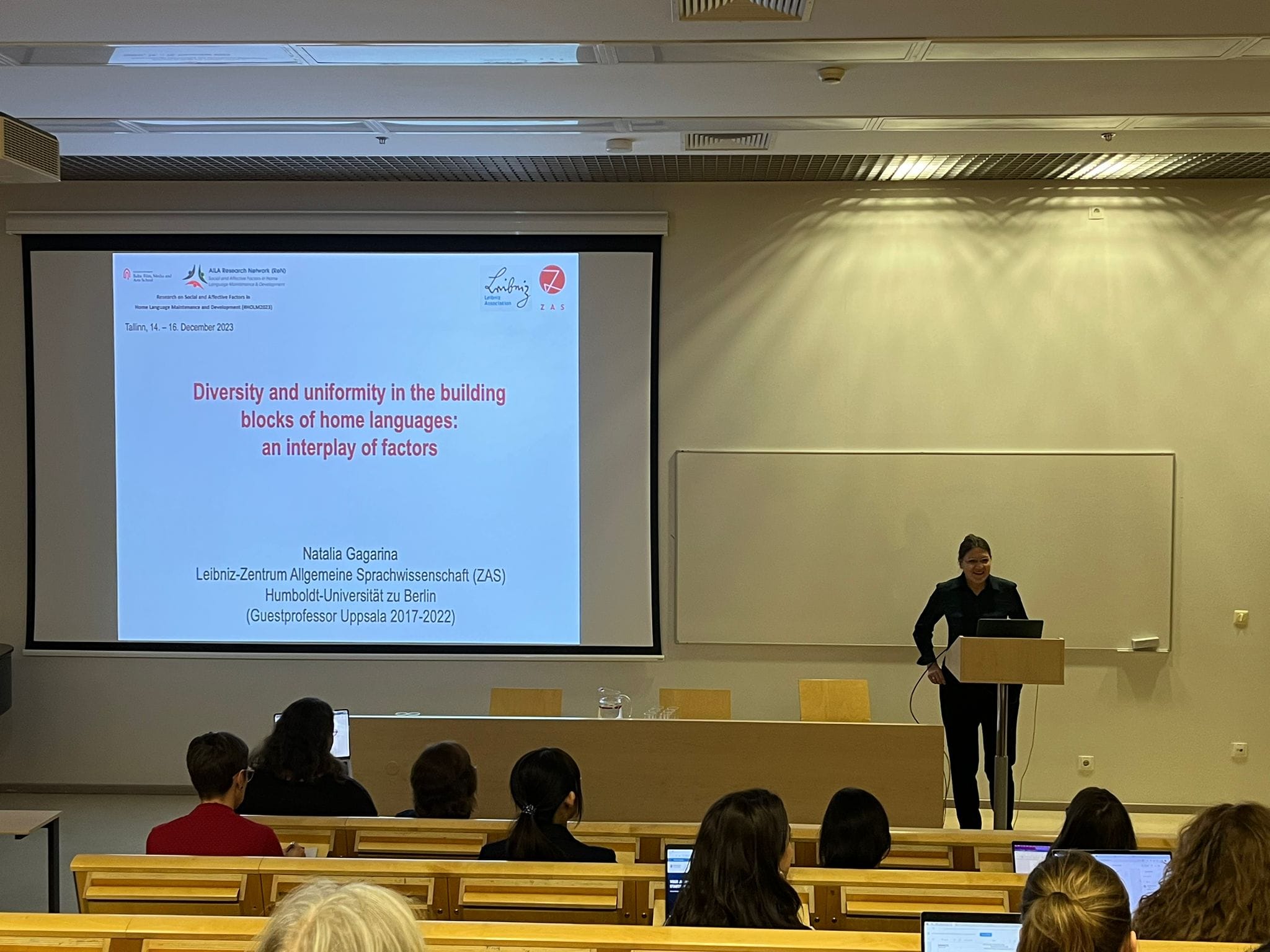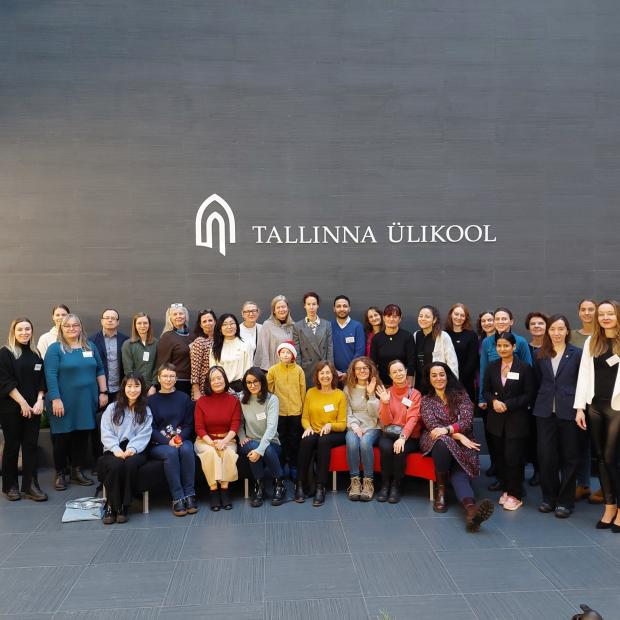HOLM2023: Day Two
The Conference on Research on Social and Affective Factors in Home Language Maintenance and Development (HOLM2023) continued on Friday, December 15th, 2023.
Participants started Day 2 of HOLM2023 conference with Professor Natalia Gagarina’s (Leibniz-Centre General Linguistics (ZAS), Germany) keynote ‘Diversity and Uniformity in the Building Blocks of Home Languages: An Interplay of Factors’. In her talk, she aimed to highlight how diversity versus similarity in the acquisition of the main building blocks of home languages, such as lexicon, grammar, and discourse, contributes to our understanding of the multilingual child’s language acquisition. She addressed two fundamental questions: (1) What is typical or similar in the development of home languages? (2) What is diverse or different in this development? For lexicon and grammar, she summarized findings from several longitudinal largescale studies that examined both languages of bilingual speakers with L2 German and various L1s. Regarding spoken discourse, she discussed findings from several special issues on the Multilingual Assessment Instrument for Narratives (MAIN).

The day continued with four sessions in which presenters demonstrated how family language policies, the transmission and non-transmission of heritage dialects, and languages in transnational families occur. The linguistic dynamic reflects nuanced parental language ideologies that shape the linguistic landscape within the household. Further delving into the realms of education, parents' multilingual storytelling in the school setting emerges as a pivotal factor influencing family language policies. Evaluating this influence sheds light on the intricate interplay between home and school environments in shaping language choices. Additionally, the agency of children in the formulation of family language policies during their transition to school emerges as a significant aspect. Understanding how children actively contribute to language decisions within the family unit provides valuable insights into the evolving nature of linguistic practices. Finally, in the context of a transnational family, exploring their multilingual repertoire, language practices, and child agency unveils the complexities of maintaining linguistic diversity in a globalized world. These diverse facets collectively contribute to a comprehensive understanding of family language policies in various socio-cultural contexts.
The day concluded with a networking event where participants engaged in the development of joint publications, research projects, and grant proposals.
To obtain further information, please do not hesitate to reach out to Professor Anastassia Zabrodskaja, HOLM2023 conference chair. You can contact her at anastassia.zabrodskaja@tlu.ee.
